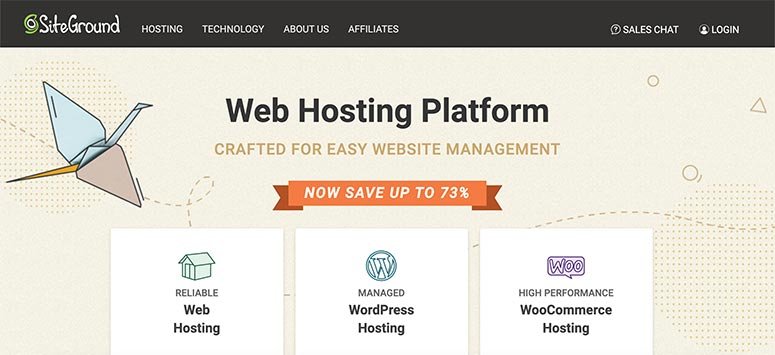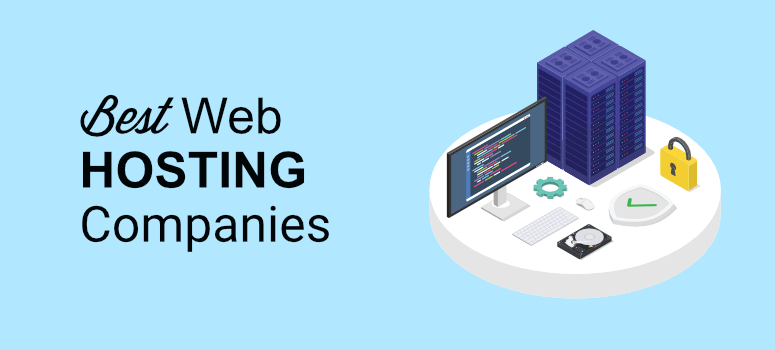Overview
SiteGround is a well-known web hosting company with a strong reputation, especially for WordPress sites. They use Google Cloud infrastructure, offer various hosting types (Shared, WordPress, WooCommerce, Cloud), and emphasize speed, reliability, and support. All I need for My Website+3TechRadar+3reviewplan.com+3
The Good
Here are the main strengths of SiteGround as of 2025:
| Feature | What they do well |
|---|---|
| Reliability / Uptime | SiteGround consistently scores very high. Many independent tests show 99.9-99.99% uptime. For example, in a 10-month monitoring period they had 7 months at 100% uptime. Codeless+2webhostingstatistics.com+2 |
| Performance & Speed | They use SSD/NVMe storage, Google Cloud’s infrastructure, HTTP/2 / QUIC, caching via their SG Optimizer plugin, and free CDN in many plans. All these help deliver fairly fast page load times and response times. Codeless+3Blogger Guide+3top15webhost.com+3 |
| Support & Tools | Strong customer support via chat/email/ticket; plenty of guides and documentation. Tools like staging environments, free migrations (some paid depending on plan), caching, security tools are well-integrated. Rara Themes+2top15webhost.com+2 |
| Security Features | Daily backups, free SSL from Let’s Encrypt, proactive monitoring, account isolation in shared hosting, etc. These are increasingly necessary, and SiteGround delivers them well. Hostingsinfo+2Medium+2 |
| Green / Eco Credentials | Because of use of Google Cloud, renewable energy, they do have environmental credentials. Good for people wanting “green hosting.” TechRadar+1 |
The Bad
No host is perfect, and SiteGround has its share of drawbacks. Here are the main issues people often raise:
| Pain Point | Details & Context |
|---|---|
| Renewal Price Increases | Introductory pricing may look good, but renewal rates are significantly higher. Many users find the cost post-initial period quite steep. top15webhost.com+3Rara Themes+3BlogBeginner+3 |
| Limited Storage on Lower Plans | For the base/shared hosting plans (“StartUp” etc.), storage (e.g. 10 GB) and other resource limits (visitors allowed, CPU usage) are modest. For small sites okay, but as you scale it can become restrictive. Rara Themes+2top15webhost.com+2 |
| No Free Domain with Basic Plans | Many competitors include a free domain for the first year. SiteGround generally does not. That’s an extra cost. Rara Themes+1 |
| Support / Access Issues in Some Cases | While support is generally good, users occasionally report delays, or a perception that support for higher-tier / priority plans is better. Also communication during incidents sometimes receives critique. top15webhost.com+2Mark Roper+2 |
| Pricing & Contract Length | You usually have to commit for 12 months or more to get the good rates; monthly or shorter-term plans are more expensive. Some features are gated behind higher-tier plans. top15webhost.com+2BlogBeginner+2 |
Everything Else / Nuances
Here are some additional details that may matter depending on your use case:
-
Plan Tiers & Features
Shared hosting has tiers (StartUp, GrowBig, GoGeek) with increasing resources (storage, allowed traffic/visitors), staging, priority support etc. Cloud plans give more dedicated resources. If you plan to grow, going for a higher-tier from the start might be wise. TechRadar+2reviewplan.com+2 -
Performance in Different Regions
Because data centers are spread (US, Europe, Asia etc.), your choice of server location affects latency. If many visitors are in Asia, picking a data center there helps. Also, using CDNs helps global performance. Blogger Guide+1 -
Scalability
If your site grows (traffic surges, e-commerce, ads), the shared plans may hit resource caps (CPU, I/O, etc.), which can slow things down or cause “surge in traffic” errors unless you move up to higher or cloud plans. Some users report being asked to upgrade due to usage spikes. Reddit+2BlogBeginner+2 -
Extras / Add-ons
Some features (migrations, staging, backups beyond basic retention, priority support) are either limited or only available in higher plans. So your actual cost might be higher when you factor in what you need. Rara Themes+1 -
User Experience
The dashboard and tools are generally rated above average; clean UI, straightforward management. The SG Optimizer plugin is seen as helpful. But for some users, performance (especially server response or TTFB) can vary depending on their site setup (themes, plugins, caching) rather than hosting alone. Reddit+1
Best For & When It Might Not Be Right
Here are scenarios where SiteGround is a strong choice, and when you might want to consider alternatives:
| If you are … | SiteGround is a Good Fit | Might Consider Other Hosts If … |
|---|---|---|
| Just starting a small blog or business site | The freebies (SSL, CDN, daily backups), strong uptime, great support make it low-risk. | You need very high traffic from day one, or need huge storage / heavy media usage. |
| Running a WordPress or WooCommerce site | They optimize for WP, have WP-specific tools and staging, etc. | If you need very high performance at scale (e.g. large-scale enterprise or stock media-heavy site), you may outgrow shared / entry-cloud tiers. |
| Distribution of visitors globally | You can pick server close to audience + use CDN to manage latency. | If your audience is in a remote region where SiteGround has no data center or CDN points nearby, performance may lag. |
| Want good support & low maintenance | Their managed features help, documentation is strong. | If you need phone based, or elite enterprise-level SLAs, better check higher-end providers. |
My Verdict
In my view, as of 2025, SiteGround remains one of the top hosting options for most small-to-medium sites, especially WordPress sites, where uptime, support, and reliability matter. It’s not the cheapest option, and costs rise with renewal and as you need more resources, but the value (features + performance + support) is strong.
If I were you, I’d consider SiteGround if:
-
Uptime matters a lot (e.g. business site / eCommerce).
-
You want decent performance out of the box and fewer surprises.
-
You value strong support and managed features.
But if you’re on a tight budget, need massive storage, or expect huge traffic from day one, it may make sense to compare against some cheaper hosts, or hosts that offer more scaling (VPS / cloud) with better price/performance at scale.



